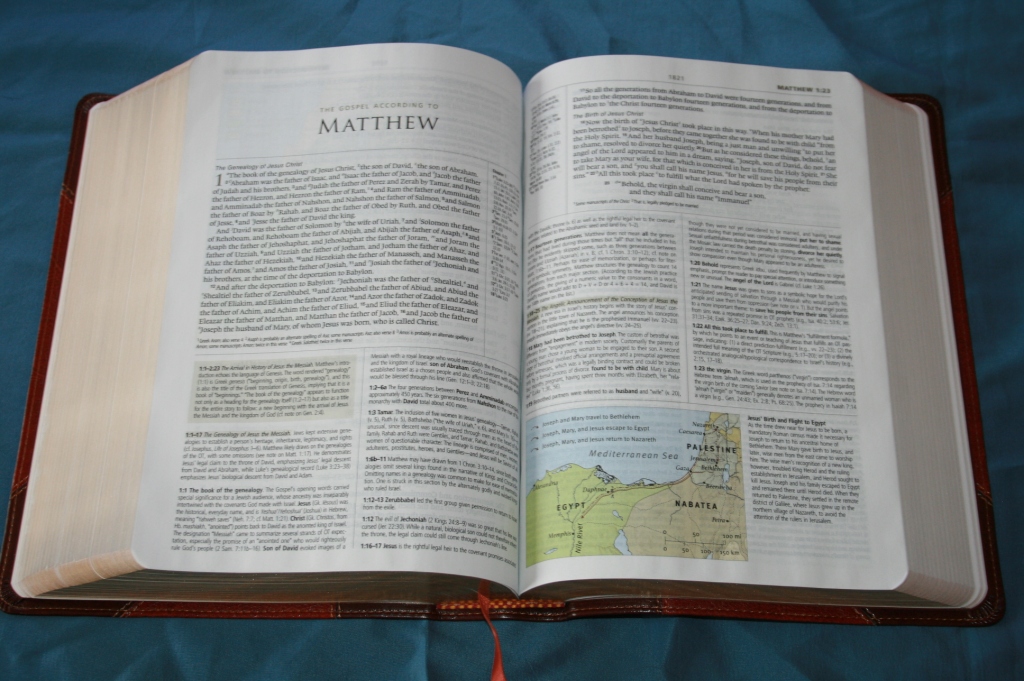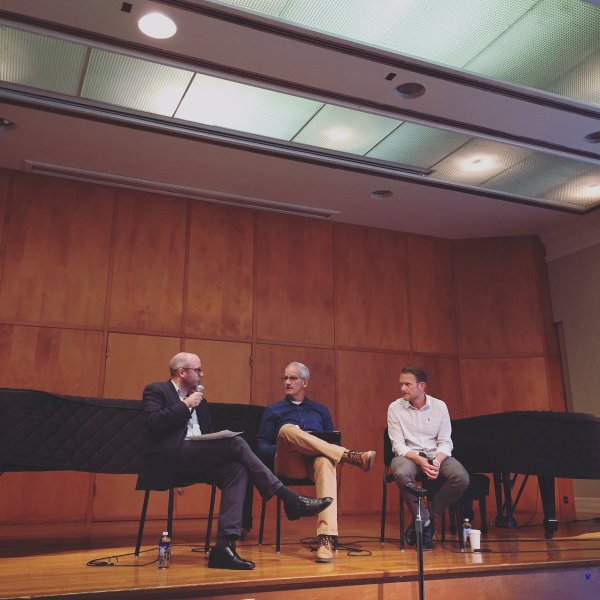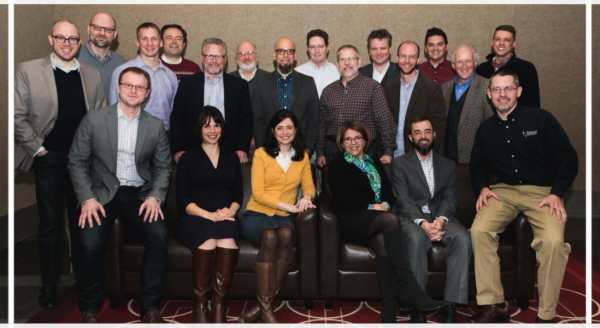I’ve moved my blogging over to a newsletter, “The Gospel Has to Be SUNG!” Check it out and subscribe!
I might use this page to compile resources from the newsletter. I might use it for more biographical connection.
We shall see!

A blog without a tagline.
I’ve moved my blogging over to a newsletter, “The Gospel Has to Be SUNG!” Check it out and subscribe!
I might use this page to compile resources from the newsletter. I might use it for more biographical connection.
We shall see!

NOTE: I am starting a newsletter entitled “The Gospel Has to be SUNG!” To receive the full version of this article, subscribe at https://matthewwesterholm.substack.com.
We live in a golden age of biblical studies. A tremendous number of modern biblical translations, full-length monographs on biblical themes, and biblical commentaries are at our fingertips.
But perhaps the most common tool for biblical study is the actual “Study Bible.” While some study bibles are, astonishingly, the work of a single author (looking at you, John MacArthur), most assemble a formidable team of scholars who contribute insights to the book of the Bible with which they are most familiar.

Sometimes, the author of a full (lengthy!) commentary on a book of the Bible has summarized their findings and included their “best stuff” in the notes to a study bible. Other times, authors known for systematic theology (Michael Horton or Kelly Kapic), biblical theology (Graham Goldsworthy), philosophy (ethicist Craig Bartholomew), or preaching (Kevin DeYoung or J. D. Greear) have written the study notes for a book of the Bible. Their perspectives provide fascinating insights on the biblical text, but it is not immediately obvious which authors have contributed which books to a study Bible. It has been a bit murky.
The purpose of this post is to “unmurk,” or demystify these resources. For readers who just want to see the raw data, I have created a spreadsheet that lists the contributors for the books of the Bible for eight of the most popular study bibles.[1] The rest of this article highlights some of my favorite gems.
[TO READ THE REST OF THIS ARTICLE, subscribe to my newsletter (‘The Gospel Has to be SUNG!’) at https://matthewwesterholm.substack.com.
[1] Some of the most popular study bibles include the ESV Study Bible (ESVSB), the ESV Gospel Transformation Bible (ESVGT), the Holman Christian Study Bible (HCSSB), the CSB Apologetics Study Bible (CSBASB), the Biblical Theology Study Bible (BTSB, formerly known as the Zondervan Study Bible), the New Living Translation Study Bible (NLTSB), the Grace & Truth Study Bible (G&TSB), and the NIV Study Bible (NIVSB).
Thanks for checking out my website. I’ve had several personal changes in my life recently, and this needs an update. Look for an update September 1, 2019.
What do you call the person (besides the preacher) who is upfront for most of your church’s Sunday morning service? Let’s consider two descriptions—“music leader” and “worship pastor”—as two different ways of leading God’s people in corporate worship.
A “music leader,” as I am using the term, is a musician who is recognized as uniquely talented among the congregation. Usually, they have more musical training or more public performing experience than other people in their congregation.
When a music leader plans church events, they import the values of their musical training and performing experience into the worship service. If they are classically trained and have performed in concert and recital halls, they might evaluate their worship services for their rhythmic accuracy, perfection of pitch, and attention to historical nuance. If they are self-taught and have performed in popular and rock music venues, they might evaluate their services in terms of spectacle, daring stage antics, and building a shared experience with other people of the same demographic.
Either way, music leaders choose songs that fit them, or songs they feel comfortable performing. Often, when their congregation expresses feedback (or criticism) to improve services, a music leader is stunned. Musicians normally play to a paying and appreciative audience. The people who disapprove of a musician’s music don’t normally complain; they just go somewhere else in order to listen to someone else.
By contrast, a “worship pastor” recognizes that the key noun in their job description is pastor. And as pastors, they labor to know the world of their people—their joys and successes, their burdens and laments—and they labor to know the world of the Scriptures. Worship pastors live, to use John Stott’s phrase, “between two worlds.”
Worship pastors work to plan worship services that survey the grand themes of Scripture—the goodness of creation, the perversion of sin, the brokenness of our fallen world, and the person and work of the Lord Jesus. Worship pastors inform their personal preferences and broaden their limited perspectives by studying the worship practices of the gathered church around the globe and throughout church history.
Worship pastors ask questions like, “If my congregation had to explain the gospel to an unbeliever using only the lyrics of the songs we sang last Sunday, could they do it?”
Worship pastors receive feedback (or criticism) from their congregation as a grace from God. While they will not implement every suggestion from every church member, they care about how their ministry is serving their people. As pastors, they love their people and want to see them grow in their ability to know the gospel and recognize the riches that are theirs in Christ.
Now certainly the extreme differences that I’m describing between “music leaders” and “worship pastors” don’t exist in real life. There are, of course, many faithful people who serve in the worship ministries of their local churches under the oversight of their elders. Seen this way, facilitating the upfront portion of a worship service is more diaconal than pastoral. Different local churches who desire biblically faithful worship ministry structures can choose from many options.
But at Bethlehem College & Seminary, we are investing in the paradigm of the Worship Pastor. We are training men who are steeped in the Scriptures, flipping Greek vocabulary cards and devoting time to hiding God’s Word in their hearts. We are training men who are proficient on their musical instruments and skilled to lead other musicians.
Above all, we are training men who love God and use music, and who refuse to switch those two priorities.
Because the glory of God will cover the earth like the waters cover the sea, worship pastors are part of an unstoppable and invincible task. Consider joining us. If you know qualified men who aspire to become worship pastors, encourage them to enroll at Bethlehem College & Seminary. And consider investing your heart and resources in the one thing that will last for eternity: the everlasting worship of our eternal God. For he alone is worthy.
I’ve been fairly busy in the last few months, but you wouldn’t be able to tell from this blog. C’est la vie. My life does not consist in the abundance of my blogging.
Back in November, I presented two workshops at the excellent conference, Doxology & Theology. The first was entitled, “Already and Not Yet: Confessing Our Worship”—an overview of my dissertation. The second workshop was a panel I hosted with Bob Kauflin and Zac Hicks entitled, “Biblical Songs, Questionable Sources.” Bob and Zac were great conversationalists, and I told a story about my grandmother that became an article (see below: “Battle Hymns”). The recording of that panel is available here.
I presented a workshop at Bethlehem’s Conference for Pastor’s and Ministry leaders. I also lead worship for the conference’s plenary sessions. You can see the video of the workshop below, and I will send you the set lists if you @ me on twitter.
I wrote a one book review for The Gospel Coalition on The Worship Pastor by Zac Hicks and another for Themelios on You Are What You Love by James K. A. Smith.

My recent articles for DesiringGod were “Disappointing Worship Services” (December 11, 2016), “One More Time: Three Ways to Worship Through Repetition” (January 16, 2017), and “Battle Hymns for the Fight of Faith“(Feb. 26, 2017).
I’m teaching a course this Spring entitled “Worship Leadership & Design” at Bethlehem College & Seminary. It’s a delight.
Enough blogging, though. Back to writing.